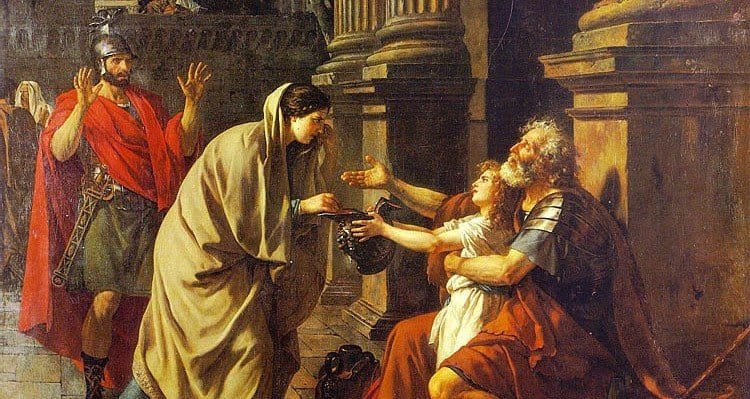Envy has destroyed great men in the past, and it might destroy a great man today.
“Belisarius Begging Alms,” a painting by Jacques-Louis David in 1781, shows a blind, aged man, who still shows the strength of his youth, sitting on a triumphal arch shamelessly begging for alms from a young woman. Belisarius, the aged beggar in the painting, was an actual Roman general largely responsible for Emperor Justinian’s extensive conquests. According to the legend, Belisarius was victim to the envy of his peers, and Emperor Justinian, believing rumors of treason against Belisarius, ordered him blinded and stripped of his wealth.
The legend of Belisarius stands for the man of virtue destroyed by envy, and David’s painting stands as a warning against a corrupt, envy-infested State.Bill Gates is a modern-day Belisarius; he also suffers from the envy-driven persecution by the State — and like Belisarius, he is persecuted for his virtues. Why? Because Gates is productive; he is good at being productive — his competitors are not. Through Anti-trust laws, envy has gained a major foothold on our justice system, and through Anti-trust laws, Gates’ competitors seek to chain him and loot his property. Under the guise of justice, they seek to drive him to the ragged state of Belisarius — begging for alms on the crumbled ruins of Microsoft.
Envy is the hatred of the good — for being the good. Belisarius’ peers wanted victories in battle — the victories they could not produce. Belisarius’ success stood as an affront to their mediocrity. They hated him and sought his destruction through institutional force. Gates’ competitors hate him on the grounds that he has achieved what they cannot, a large and successful part of the computer industry, and they seek his destruction through Anti-trust laws.
The title emotion of “Belisarius Begging Alms” is pity, but whereas the story of Belisarius ends tragically, the story of Bill Gates is unfinished. Belisarius might yet be redeemed.
To redeem both of them, we need to eradicate envy and the grip that it has on our justice system.
We need to eradicate Anti-trust laws.




